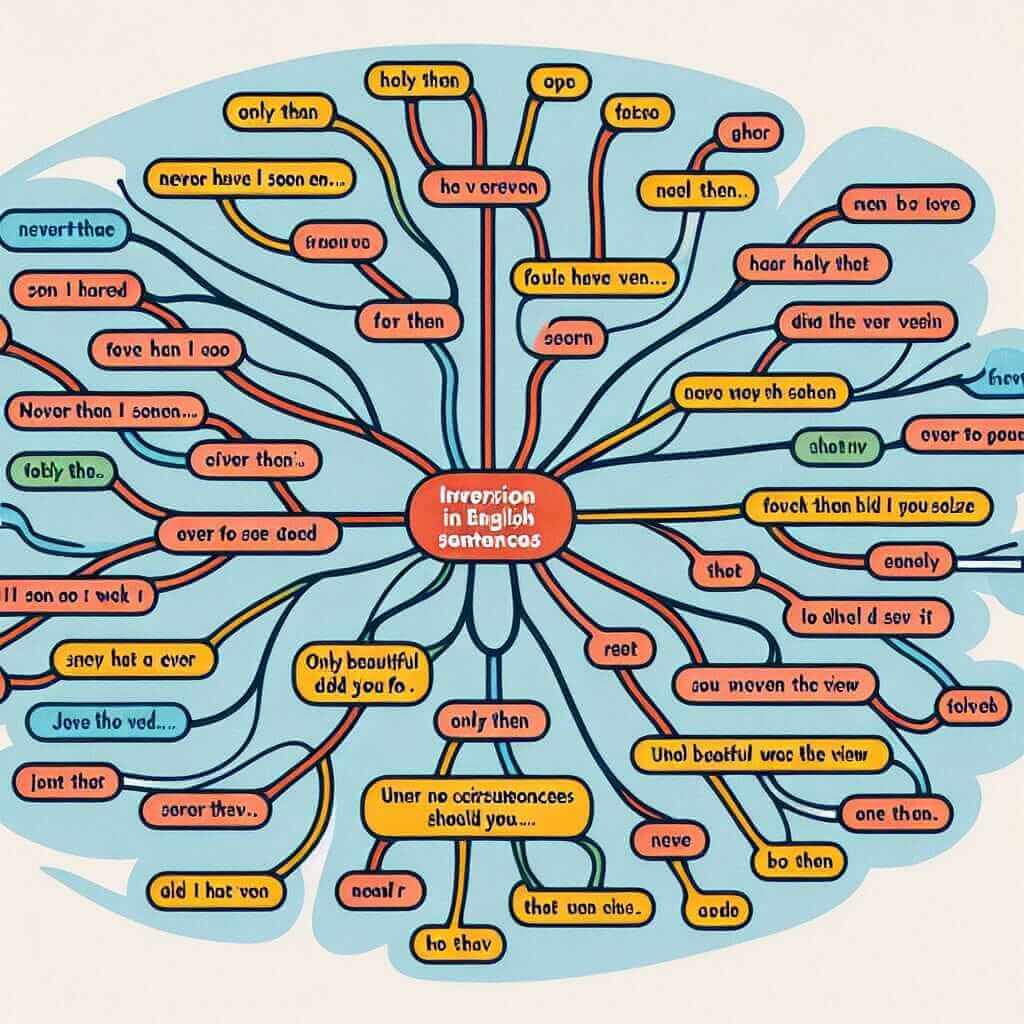Have you ever wondered why we sometimes twist our sentences around, like saying “Seldom do we get such opportunities” instead of “We seldom get such opportunities”? This intriguing grammatical phenomenon is called inversion, and mastering it can significantly enhance your IELTS score, especially in writing and speaking where complex structures are highly rewarded.
Nội dung bài viết
Let’s examine a few instances where inversion elevates language use:
- “Rarely had I encountered such generosity.” (Speaking – Part 2: Describing a memorable experience)
- “Not only does recycling help the environment, but it also conserves valuable resources.” (Writing Task 2: Discussing the benefits of recycling)
- “Under no circumstances should you share your password.” (Giving advice)
In each example, the structure of the sentence changes to emphasize a particular word or phrase, creating a more formal and impactful tone. This is the magic of inversion!
Understanding Inversion and Its Significance in IELTS
Inversion, in its simplest form, is the reversal of the usual order of subject and verb in a sentence. While the standard subject-verb order is common, inversion adds a touch of formality, sophistication, and emphasis to your language. Using inversion correctly demonstrates to the examiner that you have a strong command of grammatical structures beyond the ordinary, potentially boosting your score in grammatical range and accuracy.
The Formula and Application of Inversion
Inversion commonly occurs when a sentence begins with:
1. Negative or Limiting Adverbs:
-
Formula: (Negative/ Limiting Adverb) + Auxiliary Verb + Subject + Main Verb
-
Examples:
- Never have I seen such a beautiful sunset.
- Rarely do people consider the consequences of their actions.
- Seldom does it rain in the Atacama Desert.
- Hardly ever do we eat out during the week.
- No sooner had I sat down than the phone rang.
2. “Only” expressions:
-
Formula: “Only” + Adverbial Phrase + Auxiliary Verb + Subject + Main Verb
-
Examples:
- Only then did I realize the importance of education.
- Only after years of practice was he able to master the piano.
- Only by working together can we overcome this challenge.
3. Negative Adverbials:
-
Formula: (Negative Adverbial) + Auxiliary Verb + Subject + Main Verb
-
Examples:
- Under no circumstances should you open that door.
- At no time did she doubt her abilities.
- In no way am I suggesting that you are wrong.
4. “So…that” and “Such…that” constructions:
-
Formula: “So + adjective/adverb” or “Such + be + noun phrase” + Auxiliary Verb + Subject + Main Verb
-
Examples:
- So beautiful was the view that we forgot to take pictures.
- Such was his determination that he eventually achieved his goals.
Application in IELTS:
- Writing Task 1 (describing trends): “Not only did unemployment rates fall, but also productivity increased.”
- Writing Task 2 (expressing opinions): “Under no circumstances should freedom of speech be compromised.”
- Speaking Part 3 (discussing abstract ideas): “Rarely do we consider the long-term impact of our consumption habits.”

Illustrative Examples for IELTS
Writing (Task 2):
Topic: The use of technology in education.
Sample sentence: “Not only does technology provide students with access to a vast amount of information, but it also makes learning more interactive and engaging.”
Analysis: This sentence effectively utilizes inversion with “not only” to emphasize the twofold benefits of technology in education, showcasing a higher level of grammatical control and adding sophistication to your writing.
Speaking (Part 2):
Topic: Describe a time when you had to overcome a challenge.
Sample response: “The task seemed impossible at first. Never before had I faced such a complex problem. However, I persevered, and eventually, I found a solution.”
Analysis: The use of inversion with “never before” adds emphasis to the speaker’s feelings of being overwhelmed by the challenge, making the narrative more compelling and demonstrating a good command of grammatical structures.
Reaching Higher: Advanced Inversion Techniques
To achieve even higher band scores in grammatical range and accuracy, consider these advanced applications of inversion:
- Conditional Inversion: “Were I to choose, I would prefer…” (instead of “If I were to choose…”).
- Inversion after “Little”: “Little did he know…” (meaning “He didn’t know…”).
Remember, while inversion can greatly enhance your writing, it’s crucial to use it judiciously. Overuse can make your writing sound unnatural and forced.
Common Pitfalls to Avoid
- Incorrect auxiliary verb: Ensure the auxiliary verb agrees with the tense and subject of the sentence.
- Overusing inversion: Use it sparingly for emphasis, not in every sentence.
- Incorrect punctuation: Remember to insert a comma after the introductory phrase containing the inverted structure.
Conclusion
Mastering inversion is like adding a powerful tool to your grammatical toolbox. It allows you to express yourself with greater precision, emphasis, and stylistic flair, ultimately helping you achieve a higher band score in the IELTS exam. Remember to practice using inversion in various contexts, and soon it will become a natural part of your English repertoire. Good luck!